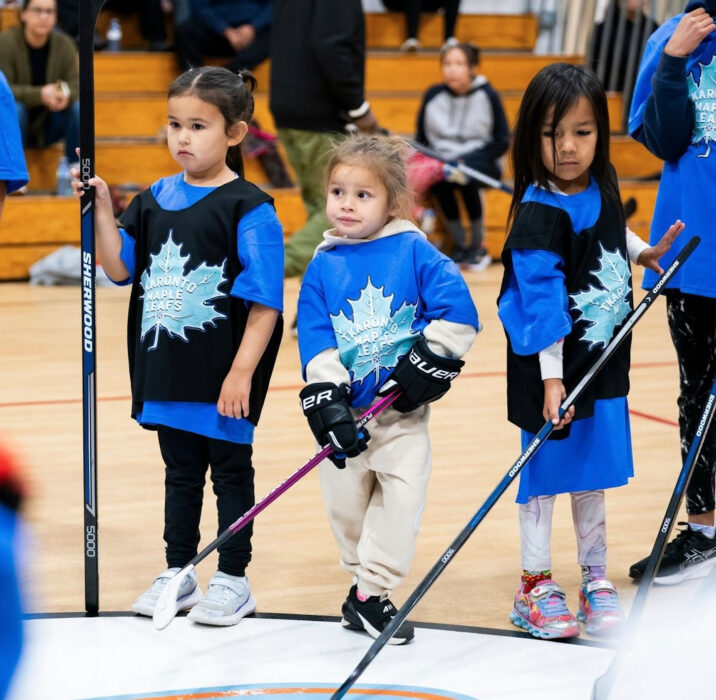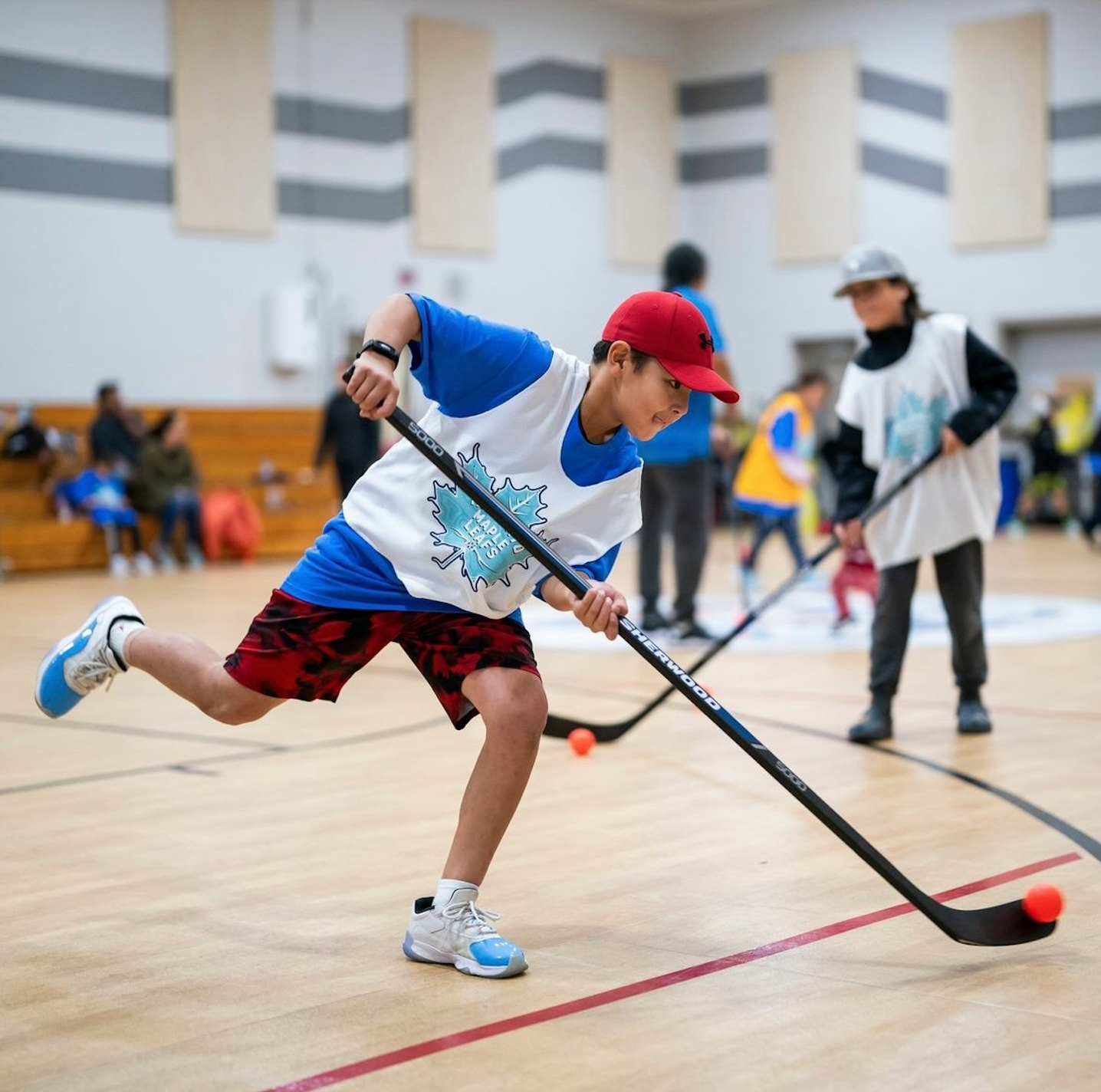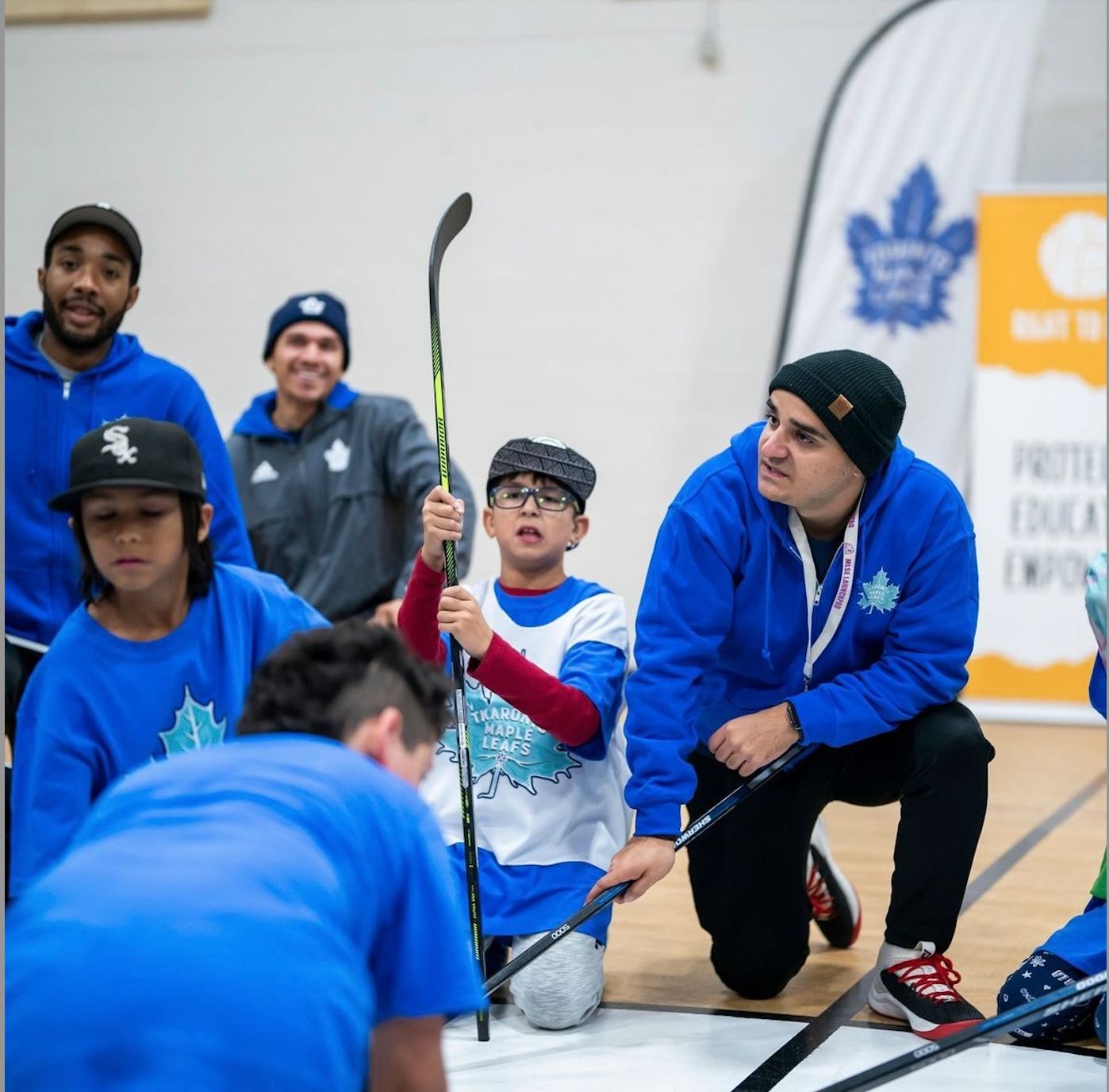
The Toronto Maple Leafs are committed to using sports as an opportunity to make a difference among Indigenous youth and support reconciliation while educating themselves and those around them.
Beyond the Leafs’ interest and commitment to using sports to support and build up youth, the team narrowed its focus a few years ago with the uncovering of unmarked graves of Indigenous children at the site of the former Kamloops Indian Residential School.
“We had an awakening and realized a lot of settlers don’t know the impact residential schools have had on Indigenous communities across the country. And the true history, experiences, and intergenerational trauma that came from these schools,” said Director of Culture and Inclusion for the Toronto Maple Leafs Mark Fraser. “Similar to many other Canadians, I think it was a big wake-up call and gave us the opportunity to use our platform to empower ourselves and our fans to support right relations in a more intentional way.”

Director of Community Investment and Social Impact with MLSE Kendra Kerr said the Leafs want to work hand-in-hand with Indigenous communities across the province to advance right relations.
“Fostering right relations is a responsibility we have as settlers. Some of our continued commitments involve direct programming, granting to Indigenous organizations, and working to increase the awareness and representation of Indigenous peoples in our sport ecosystem. Hockey is an Indigenous sport and we know communities have a long history when it comes to hockey,” said Kerr. “What we are trying to do now is honour that history with the work we’re doing.”
Kerr explained a lot of the work focuses on sport development.
“We are often invited into a community to facilitate skills and drills clinics; exciting youth by using hockey as a tool to help them reach their potential,” she said. “We know there is a lot of skill within Indigenous communities when it comes to hockey and many northern territories have long winters which leads to lots of frozen ponds to skate on and practice. At the end of the day, we want to make sure Indigenous communities see themselves as part of our organization.
said Kerr.

Even though the Leafs have such a public platform, there is a lot of behind-the-scenes work being done to help communities feel valued and appreciated no matter how far away they may be.
“This year we are partnering with the Little Native Hockey League (LNHL), the largest Indigenous hockey gathering,” said Fraser. “This ensures more kids from northern communities will have the resources needed to excel in our game. Things like this are bigger than hockey — it’s about investing in community.”
According to the team, nothing is expected of individuals or communities except a willingness to work together.
The Leafs continue to be committed to celebrating indigeneity within the culture of hockey by hosting its annual Indigenous Celebration Game. The second annual game was held on January 13 with the goal of educating Leafs fans on the long connection to hockey that Indigenous communities have.
“We hope to help Indigenous youth to feel proud of who they are — while understanding that hockey hasn’t always made that easy or treated them fairly. Our goal is to ensure we don’t continue that legacy of exclusion,” said Fraser.








